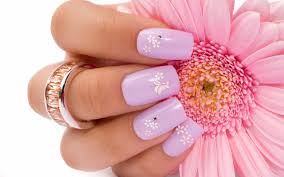nail
英 [neɪl]
美 [neɪl]
- vt. 钉;使固定;揭露
- n. [解剖] 指甲;钉子
- n. (Nail)人名;(法)纳伊;(土、阿拉伯、罗)纳伊尔
使用频率:

记忆方法
将“nail”与“需要快速固定”的场景联系起来,比如想象你用钉子(nail)固定某物,这样就可以快速记住这个单词与钉子、固定作用的关联。
以上内容由AI生成, 仅供参考和借鉴
中文词源
nail 钉子,指甲
来自PIE*nogh,指甲,爪子,词源同unguent,onyx.引申词义钉子。拼写比较rule,regulate.
英语词源
- nail
-
nail: [OE] The Indo-European ancestor of nail was *nogh- or *onogh-. The latter was the source of Latin unguis (which evolved into French ongle and Italian unghia and has given English ungulate [19]) and Greek ónux (source of English onyx). Both these strands refer only to the sort of nails that grow on fingers and toes, but the Germanic branch of the family (which has come from *nogh- through a prehistoric Germanic *naglaz) has differentiated into a ‘fastening pin’ – originally of wood, latterly of metal.
Hence English nail and German nagel cover both meanings (although Dutch and Swedish nagel and Danish negl are used only for the anatomical ‘nail’).
=> onyx, ungulate - nail (n.)
- Old English negel "metal pin," nægl "fingernail (handnægl), toenail," from Proto-Germanic *naglaz (cognates: Old Norse nagl "fingernail," nagli "metal nail;" Old Saxon and Old High German nagel, Old Frisian neil, Middle Dutch naghel, Dutch nagel, German Nagel "fingernail, small metal spike"), from PIE root *(o)nogh "nail" (cognates: Greek onyx "claw, fingernail;" Latin unguis "nail, claw;" Old Church Slavonic noga "foot," noguti "nail, claw;" Lithuanian naga "hoof," nagutis "fingernail;" Old Irish ingen, Old Welsh eguin "nail, claw").
The "fingernail" sense seems to be the original one. Nail polish attested from 1891. To bite one's nails as a sign of anxiety is attested from 1570s. Nail-biting is from 1805. Hard as nails is from 1828. To hit the nail on the head "say or do just the right thing" is first recorded 1520s. Phrase on the nail "on the spot, exactly" is from 1590s, of obscure origin; OED says it is not even certain it belongs to this sense of nail. - nail (v.)
- Old English næglian "to fasten with nails," from Proto-Germanic *ganaglijan (cognates: Old Saxon neglian, Old Norse negla, Old High German negilen, German nageln, Gothic ganagljan "to nail"), from the root of nail (n.). Related: Nailed; nailing. Meaning "to catch, seize" is first recorded 1766, probably from earlier sense "to keep fixed in a certain position" (1610s). Meaning "to succeed in hitting" is from 1886. To nail down "to fix down with nails" is from 1660s.
权威例句
- 1. He fought tooth and nail to keep his job.
- 他竭尽全力保住自己的工作。
- 2. A mirror hung on a nail above the washstand.
- 脸盆架上方用钉子挂着一面镜子。
- 3. One dip into the bottle should do an entire nail.
- 往瓶子里蘸一下的量就应该能涂满整个指甲。
- 4. The glitterati of Hollywood are flocking to Janet Vaughan's nail salon.
- 众多的好莱坞名流都去光顾珍妮特·沃恩的美甲店。
- 5. I held it still and drove in a nail.
- 我稳稳地拿着它将钉子钉了进去。